

| Title | Author | Call# | Book Cover |
|---|---|---|---|
| The Wealth of Nations | Smith, Adam | HB 161 .S65 1991 | 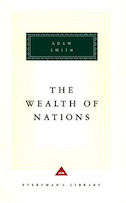 |
| Economics for the Common Good | Tirole, Jean | HD 87 T57 2017 | 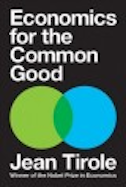 |
| Principles of Microeconomics | Mankiw, N. Gregory | HB 172 .M36 2019 |  |
| Microeconomics: Canada in the Global Environment | Parkin, Michael | HB 172 .P37 2015 |  |
| Macroeconomics | Ragan, Christopher | HB 172.5 .R35 2016 | 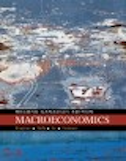 |
| An Introduction to the Canadian Labour Market | Drost, Helmar | HD 5728 .D76 2014 | 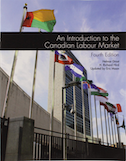 |
| Capitalism and Freedom | Friedman, Milton | HB 501.F7 1982 | 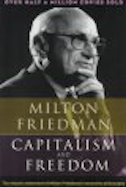 |
| Managerial Economics | Samuelson, William | HD 30.22 .S26 2015 | 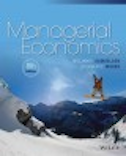 |
* Want to reserve one of these titles? Email library@alexandercollege.ca with your student # and the book title.
These e-Books are available in the online library collection. Click the title to access the resource.
Managerial Economics: Tools for Analyzing Business Strategy
Webster, Thomas J. 2015
Macroeconomic Theory: A Short Course
Michl, Thomas R. 2015
Capital in the Twenty-first Century
Piketty, Thomas 2014
Microeconomics: A Critical Companion
Fine, Ben 2016
Essentials of Money, Banking and Financial Institutions: With Applications to the Developing World
Andoh, Samuel K. 2014
Elements of Environmental Management
Antweiler, Werner 2014
ALabor Markets: Analysis, Regulations and Outcomes
Murray, Jonathan 2016
These handbooks provide easy to digest information about topics covered within economics.
The Cambridge Handbook of Psychology and Economic Behaviour (2008)
The Cambridge Handbook of Psychology and Economic Behaviour contains studies on consumer behaviour from the psychological and biological perspectives.
Handbook of Regional Economics (2009) by Tomas P. Nolin
Handbook of Regional Economics covers 4 main categories of regional economics including household and labour, production, housing markets, and government.
When looking for resources related to ECON, try some of these keywords in your searching :
e.g., Canada and economy
* Interested in learning more about using keywords for research? Check out our videos on how to create and search using keywords on our Research Skills page.
Open access resources are resources that are available to everyone for free online. Links here will lead to sites where you can download textbooks or access journals related to economics.
Principles of Economics covers scope and sequence requirements for a two-semester introductory economics course. The authors take a balanced approach to micro- and macroeconomics, to both Keynesian and classical views, and to the theory and application of economics concepts.
Principles of Macroeconomics by Douglas Curtis and Ian Irvine
Principles of Macroeconomics presents a complete and concise examination of introductory macroeconomics theory and policy suitable for a first introductory course. Examples are domestic and international in their subject matter and are of the modern era — financial markets, monetary and fiscal policies aimed at inflation and debt control, globalization and the importance of trade flows in economic structure, and concerns about slow growth and the risk of deflation, are included.
Principles of Macroeconomics for AP Courses 2e
Principles of Macroeconomics for AP Courses covers the scope and sequence requirements for an Advanced Placement macroeconomics course.
Principles of Microeconomics by Douglas Curtis and Ian Irvine
Principles of Microeconomics provides concise yet complete coverage of introductory microeconomic theory, application and policy in a Canadian and global environment.
Principles of Microeconomics by Libby Rittenberg and Tim Tregarthen
Principles of Microeconomics integrate a number of pedagogical features that we believe make learning economic concepts and principles easier and more fun. These features are student-focused. The chapters themselves are written using a “modular” format.
Information from Canada’s central bank including reports, statistics, and other publications.
Information on the federal budget and financial policies.
Statistics from the Government of Canada including CPI, unemployment rate, and real GDP by expenditure.
Made up of five institutions, the mission of the World Bank is to reduce extreme poverty, increase shared prosperity, and promote sustainable development.
Created in 1945, the purpose of this organization is to ensure the stability of the international monetary system in 189 participating countries.
Issues can be found from 1988 – present through AC’s online Library.
Assignments written for Economics courses use the APA (or American Psychiatric Association) rules for formatting. APA handbooks are available for your reference in the library or at the Writing and Learning Centre. Online WLC guides can be found here. You can also book an appointment with the Writing and Learning Centre for workshops and one-on-one citation help.
Need help? Connect with a Librarian through AskAway!
AskAway ChatAlexander College acknowledges that the land on which we usually gather is the traditional, ancestral and unceded territory of the Coast Salish peoples, including the territories of the xʷməθkwəy̓əm (Musqueam), Skwxwú7mesh (Squamish), and Səl̓ílwətaʔ/Selilwitulh (Tsleil-Waututh) Nations. We are grateful to have the opportunity to work in this territory.
Alexander College acknowledges that the land on which we usually gather is the traditional, ancestral and unceded territory of the Coast Salish peoples, including the territories of the xʷməθkwəy̓əm (Musqueam), Skwxwú7mesh (Squamish), and Səl̓ílwətaʔ/Selilwitulh (Tsleil-Waututh) Nations. We are grateful to have the opportunity to work in this territory.